God’s name has been co-opted by many movements and in many ways over the years, but when Compassion promises to release children from poverty in the name of Jesus, Megan Cornwell says she no longer has to take it on good faith. She has seen it with her own eyes, and she believes
Guavas, bananas, sugar cane, beans, papayas the size of your head. One by one, Sula places the ripe harvest in front of us in bowls. He’s offering it as a gift, but I see it as a symbol of what God has done in his life.
I’m in hot, humid Uganda, where Sula lives down a dirt track and past dense fields of matoke trees. There’s no tarmac road to follow and, in the rainy season, the terracotta-coloured earth slides into a thick sludge that is impossible to navigate. The only way to get there is by foot, or on the back of the infamous boda boda motorbike taxis that buzz along the main roads in and out of the capital city, Kampala. It takes Sula and his six-year-old daughter, Immaculate, around half an hour to walk to school each day.
Sula instinctively understands the value of education, despite not being able to read or write until recently. So, instead of insisting his daughter stays home to mother her younger siblings, or help grow the crops that feed the family, they faithfully walk to the Baale Child Development Centre each and every day.
In Uganda, there is a state programme for primary education, but parents expect to pay a stipend, as well as supplying books and uniforms for their children. This is prohibitively expensive for the 42 per cent of the population living below the poverty line on an income of less than $2 a day.
Poverty is more than what you can see or what you don’t have, it’s a condition of the heart
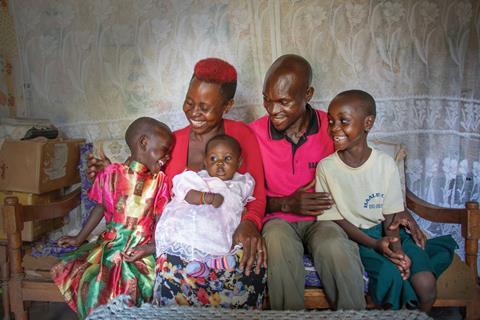
For Immaculate’s family, however, this financial strain doesn’t exist, because Compassion covers the cost. It means Immaculate can join her friends from the village to learn how to read and write – and, one day, this education will help her break free from the shackles of poverty that have held her family hostage for generations.
The hope of the world
Since 1980, Compassion has seen 125,900 Ugandan children released from poverty in Jesus’ name. Currently, only 26 per cent of children in the country complete secondary education so, despite Compassion’s impressive track record, there are still many yet to be reached. Immaculate was selected for the Baale programme because her family scored high on the poverty index, placing her in the demographic of greatest need.
The school she attends is on the site of her local church, which is how Compassion runs all its projects – through faithful Christians on the ground. This means that alongside maths, hygiene classes and English, Immaculate is learning that Jesus loves her. In many ways, this is the most important lesson of all.
Jesus’ love is a powerful message that we sometimes take for granted in the West, where we are full up from other things. In Uganda – where, for many, material circumstances say otherwise – it can be harder to grasp. But once this simple truth sinks in, it changes everything. Poverty is more than what you can see or what you don’t have, it’s a condition of the heart. It is a lie that whispers: You are nothing. This is how things will always be. But the message of the gospel cuts through that voice to declare life and hope, pulling even the most desperate to solid ground. There is a way, there is a better day coming.
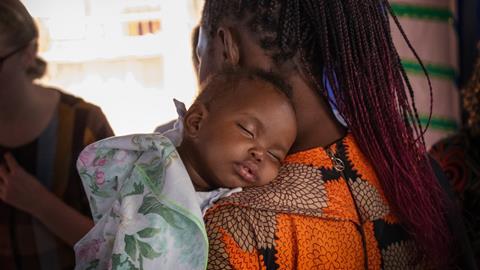
Compassion might be a Christian development charity, but really, they are hope-bringers. Through the local church, they lift children – who would otherwise be kept low – into positions of authority and influence. One by one, these little children are changing the world.
Among the illustrious former alumni of Compassion is an anti-corruption officer in the Ugandan government, a real-estate mogul building affordable homes for the next generation and a famous singer with celebrity influence. All of them are passionate Christians, sharing the reasons for their hope in the rooms God has placed them in.
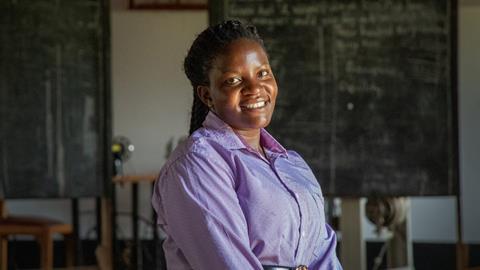
Embracing Jesus
Driving north from Kampala to Sula’s village, I saw mosques, mid-construction, on many corners. As we walked around, a sound like an air-raid siren called locals to prayer.
Not long ago, Sula would have joined the crowds heading to worship Allah. But no longer. After he was introduced to Pastor Francis at the church that meets by Immaculate’s school, it wasn’t long before Sula converted to Christianity. A sermon inspired by John 3:16 spoke to his heart and offered assurance about eternal life where Islam was silent. Now he tells everyone in his community about Jesus, using the loud speaker he bought specifically for evangelism.
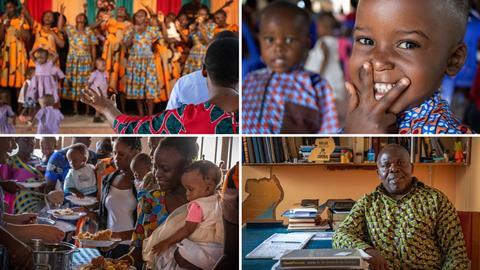
Learning that Jesus loves her is the most important lesson of all
Thanks to Compassion’s holistic approach to poverty eradication, through the Baale Child Development Centre Sula has learned to style hair, and now has a small hairdressing business where locals come for a cut and colour. His wife’s tomato-red afro is testament to his skills.
The family has immeasurably more than they could have ever imagined: education for their children, a business, seeds to grow crops and access to healthcare services. But, most importantly, they also have Jesus.
And so, as Sula places his produce in front of us, insistent that we take it as a sign of his appreciation for all Compassion has done, I can’t help but think of the little seed that produces a crop far greater (Mark 4:30-32). And as the star fruit and mangoes tumble out of the piled-high bowl, and the six-foot sugar cane stretches out of the doorway like a contented cat in the sun, I reflect on a heart and home that is overflowing. “I have come to bring you life in all its fullness” says the Lord. Or, as Sula puts it: “We have been richly blessed.”
To sponsor a child and change a life, visit compassionuk.org












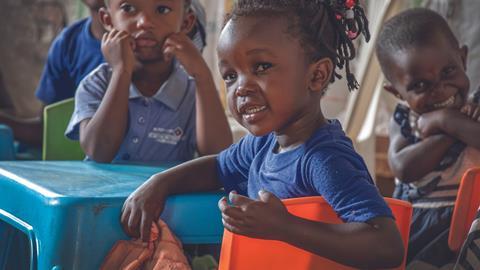



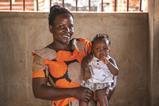





















No comments yet